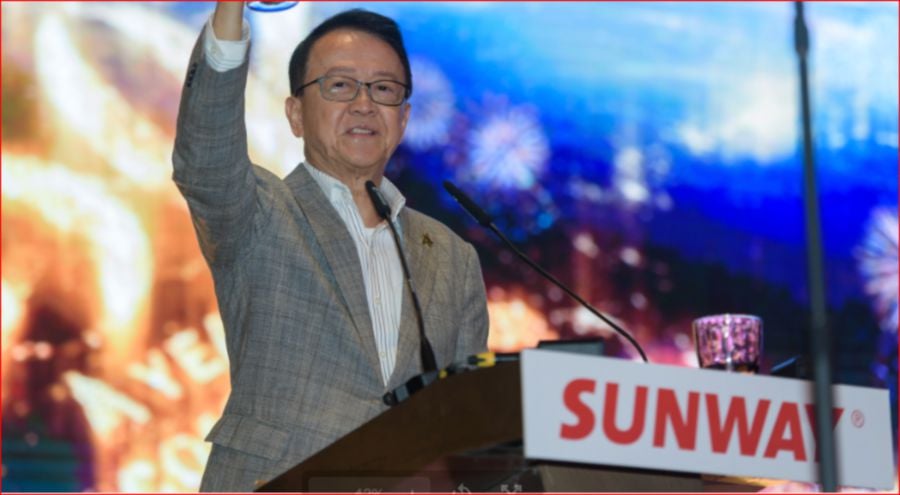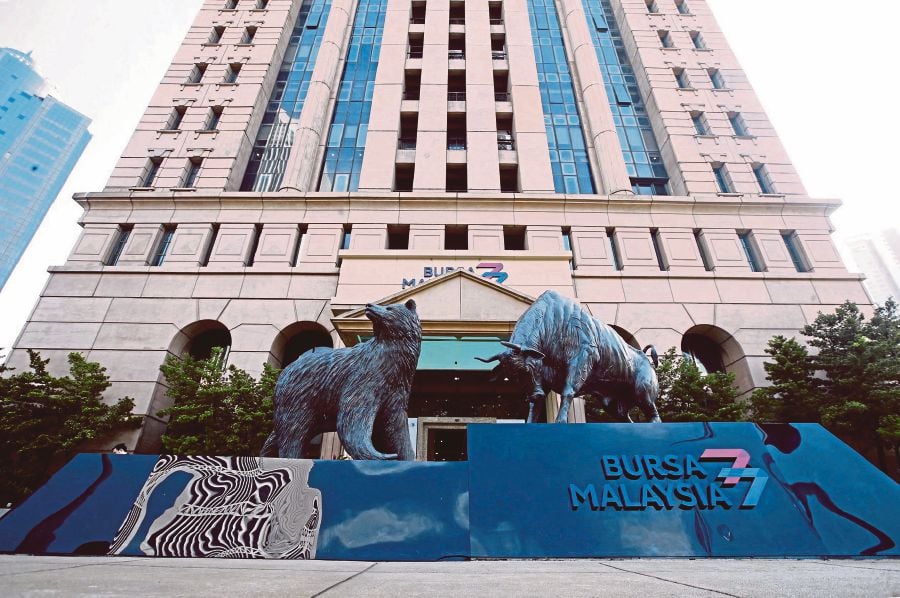By Tan Sri Lee Kim Yew, founder of Country Heights Holdings Berhad
 |
| Tan Sri Lee Kim Yew |
To the Leaders and Citizens of Malaysia, as we look forward to the future, one truth stands clear: our youth are our greatest asset.
They are the driving force that will carry Malaysia through the next decades, shaping our nation’s progress, innovation, and unity. Yet, today, many of our young citizens—whether from the bustling cities of Peninsular Malaysia or the vast lands of Sarawak and Sabah—are finding themselves compelled to seek better opportunities elsewhere, even beyond our borders.
We see our talented youth drawn away, "brain-drained,” to countries like Singapore and further afield, not because they do not love Malaysia but because they believe the opportunities they need to fulfil their potential are elsewhere. From the rural heartlands of Sarawak to the urban centres of Kuala Lumpur, this is a shared challenge. But more than that, it is a call to action.
Our West Malaysian youth are full of creativity, drive, and ambition. Our East Malaysian youth, too, possess incredible resilience, skills, and a deep connection to their land. Yet both groups of young Malaysians face barriers—either a lack of opportunity, restrictions in movement, or insufficient investment in local development—that make it harder for them to build their futures here at home. It is time we come together to change this.
*Uniting East and West: A Future Without Barriers*
A better future for our youth means a Malaysia where our young people, no matter where they are born, can move freely, learn freely, and work freely within their own country. A future where a young person from Sarawak or Sabah can explore job and education opportunities in Peninsular Malaysia without barriers, and vice versa. We must look at changing the immigration laws between East and West Malaysia to allow greater freedom of movement, especially for our younger generations.
Let us remember that when Malaysia was formed in 1963, it was built on the idea of a unified federation—a nation made stronger by its diversity and collective strength. While Sarawak and Sabah have been rightly granted special autonomy to protect their unique identities and interests, we must now ask ourselves: Can we maintain these protections while also building a stronger, more unified future for our youth?
By easing the restrictions on movement for the young people born in and after 2000, we can strike the right balance between honouring Sarawak’s autonomy and fostering greater national unity. This change would not only uphold the spirit of our Federal Constitution, which guarantees the freedom of movement and equality for all citizens, but it would also encourage the exchange of ideas, skills, and cultures that are essential for the growth of any nation.
*A Future of Opportunity: Building Bridges, Not Borders*
This is not only about movement; it is about opportunity. We must create a Malaysia where a young person does not feel they have to look to Singapore, Australia, or any other third country to find a promising career. We must create the conditions where Sarawakian youth, with their rich cultural heritage and untapped potential, can come to Peninsular Malaysia, gain valuable skills and experience, and then return home to help develop Sarawak into a thriving hub of agriculture, energy, and technology.
Similarly, Peninsular youth should be encouraged to explore the vast, opportunity-filled landscapes of East Malaysia. With proper investment in infrastructure, education, and job creation, the young people of Kuala Lumpur, Johor, or Penang could bring new industries to Sarawak’s shores—whether in the fields of eco-tourism, sustainable agriculture, or renewable energy.
*Addressing Brain Drain: Keeping Talent at Home*
By opening up our states to each other and creating pathways for development, we will stem the tide of brain drain. Let us keep our talented graduates, engineers, doctors, and creatives at home. This means investing in our local economies, ensuring that wages and job conditions in Sarawak, Sabah, and throughout Peninsular Malaysia are competitive. It means building better infrastructure—roads, hospitals, schools, and broadband networks—that make life in any part of Malaysia attractive, whether it’s in the heart of Kuching, the mountains of Borneo, or the cities of the Peninsula.
It means creating public-private partnerships that encourage entrepreneurship and innovation at home. Let our youth know that their dreams and ambitions do not have to take them overseas to be realized. Malaysia must become a land where they can thrive, grow, and succeed.
*A Call for Unity and Action*
As we move forward, we must ask ourselves: What kind of nation do we want to build? One where our young people are divided by geographical boundaries and restrictions, or one where they are free to connect, contribute, and create across our entire Federation? It is time for a national conversation about how we can empower our youth to stay, to return, and to build.
It is time for our leaders in Parliament to amend the laws that prevent young Sarawakians and Sabahans from moving freely, and to support policies that build bridges between East and West Malaysia. This is not just good for Sarawak or Peninsular Malaysia—it is good for the entire nation.
Malaysia was built on the promise of unity in diversity. Let us take the next step in fulfilling that promise by giving our youth the freedom, opportunities, and encouragement they need to build a better future—both for themselves and for this country we all call home.
*In Unity, We Thrive*
Together, we can ensure that the future of our youth is not defined by borders but by the opportunities they create. We can ensure that Malaysia remains a place where dreams are realized not just in one part of the country but across the whole nation. Our young people deserve no less.
Let us act now so that we build a better Malaysia, united and stronger, for all our youth.
*Federal Constitution: Articles 8 and 9 are part of the Fundamental Liberties*
Article 8: Ensures all citizens are equal before the law and entitled to equal protection, allowing reasonable classifications when justified.
Article 9: Prohibits banishment of citizens and guarantees freedom of movement within Malaysia, subject to legal restrictions for public security, order, or health.


